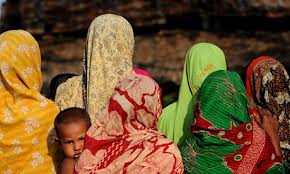Dhaka, April 28 – Bangladesh has witnessed a five-fold growth in the number of registered private hospitals and clinics since 2000.
According to the government’s Health Bulletin 2017, the number of registered private hospitals and clinics under Directorate General of Health Services (DGHS) has increased to 5,023 in 2017, which was 3,026 in 2011 and only 1,032 back in 2000.This rapid growth of private sector is a sign of increasing demand and lack of capacity and shortage of health workforce in public sectors, said experts on Saturday at a city programme adding that this sector needs to be monitored and regulated properly and the government has to work for increasing its quality.
They said the government has to put more emphasis on private healthcare sector to achieve Universal Health Coverage (UHC) by 2030, a must to attain Sustainable Development Goals (SDG).
A large portion of the country’s population depends on private medical sector for getting health care services but the government has very little attention for the capacity building as well as monitoring and regulating it, said the experts.
They were speaking at a health policy dialogue titled ‘Engaging Private Sector to Achieve Universal Health Coverage in Bangladesh’ organised by the Strengthening Health, Applying Research Evidence (SHARE) project of icddr,b at the CIRDAP Auditorium.
According to them, UHC is one of the goals of SDG which has promised to ensure quality health care for all without financial risk by 2030 and in Bangladesh perspective, private sector occupies a significant portion of health services including clinical care, pharmaceuticals, ambulances, diagnostics, consultancy and so one.
A research conducted by icddr,b between 2013 and 2014 on the urban regions found the private sector has lots of challenges and problems such as lack of appropriate law enforcement and regulations, absence of skilled fulltime doctors and nurses, lack of quality care with very limited treatment period along with excessive cost.
It also showed that the doctors usually do dual practices that mean government hospitals’ doctors checkup patients privately in the afternoon and on the other side the private hospitals do not get efficient nurses as they typically are transferred to government jobs.
Dr Iqbal Anwar, Scientist and Director of the SHARE project, presented keynote at the programme.
He said there left no other way for the private sector but to engage with the government to ensure UHC.
He recommended some ways to improve the private services such as accreditation of the sector by the government as a contributing body, improving its quality by strengthening regulations with participatory monitoring, building its capacity and resource with government training and equipment facilities.
Dr Iqbal also recommended for providing financial support for underprivileged patients, through Public Private Partnership (PPP) and encouraging health insurances to disseminate health care for all.
Director General of Directorate General of Health Services Abul Kalam Azad said the government is working to improve the health services to achieve UHC.
He said government started experimenting health insurance programme in three upazilas of Tangail and if the experiment is found fruitful, they replicate the same all over the country.
Dr TA Chowdhury, chief consultant of BIRDEM, chaired the session with Dr Mushtaq Husain, coordinator of Co-ordinate and Support Center of DGHS and other experts giving their views.
Prof Robaet Ferdous of Mass Communication and Journalism Department of Dhaka University moderated the dialogue. – UNB




